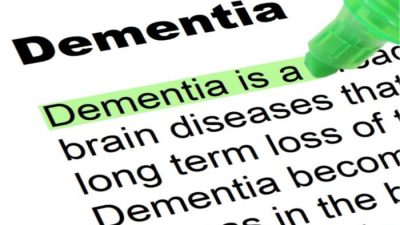Car accidents can be a devastating experience, leaving victims overwhelmed and unsure of their next steps. In Ventura, CA, a dedicated car accident attorney can be your greatest ally, providing essential legal support to navigate the complexities of your case. From understanding your rights to ensuring you receive the compensation you deserve, having a professional by your side makes a significant difference.
This guide explores the crucial role that car accident attorneys play in Ventura, CA, outlining their responsibilities, the services they provide, and how they can help you during one of the most challenging times of your life. Whether you’re dealing with insurance companies or seeking justice through the legal system, knowing what to expect can help you feel more empowered as you move forward.
In today’s fast-paced world, the art of effective communication stands as a cornerstone of personal and professional success. Whether in casual conversations, business meetings, or written correspondence, the ability to convey thoughts clearly and respectfully can make all the difference in how one is perceived and, ultimately, how one achieves their goals. This article delves into the various aspects of effective communication, exploring its importance, key components, and strategies for improvement.Effective communication can be defined as the process of exchanging information in a way that is clear, concise, and understood by all parties involved.
It encompasses a range of skills, including active listening, non-verbal communication, and the ability to articulate thoughts in a coherent manner. At its core, effective communication is about understanding the needs and perspectives of others while being able to express oneself in a manner that fosters collaboration and understanding.One of the fundamental components of effective communication is active listening. This skill goes beyond simply hearing the words spoken; it involves engaging with the speaker, asking clarifying questions, and providing feedback.
Active listening demonstrates respect for the speaker and ensures that the message is received accurately. By focusing fully on the speaker, one can better understand their viewpoint, leading to more fruitful discussions and stronger relationships.Another crucial aspect of effective communication is non-verbal communication. Body language, facial expressions, and tone of voice play significant roles in conveying messages. For instance, a friendly tone can enhance the meaning of spoken words, while crossed arms may signal defensiveness or disinterest.
Being aware of one’s own non-verbal cues, as well as those of others, can greatly improve the quality of interactions. It’s important to note that non-verbal signals can sometimes contradict verbal messages, leading to confusion; therefore, ensuring consistency between the two can enhance clarity.Articulating thoughts clearly is equally important. This involves structuring one’s ideas logically and presenting them in a manner that is easy for others to follow.
Whether speaking or writing, it is beneficial to tailor the message to the audience. For example, technical jargon may be appropriate in a specialist meeting but could alienate those outside the field. Understanding the audience’s background and adjusting the communication style accordingly can foster inclusivity and comprehension.Moreover, empathy plays a vital role in effective communication. By putting oneself in another’s shoes, one can better appreciate their feelings and perspectives.

This not only aids in responding more thoughtfully but also contributes to building rapport. Empathetic communication creates an environment where individuals feel valued and understood, which can lead to more open and honest exchanges.In a professional setting, effective communication is essential for teamwork and collaboration. Clear communication helps to avoid misunderstandings and ensures that all team members are on the same page regarding goals and expectations.
Regular check-ins and updates can facilitate this process, allowing team members to share progress and address any challenges that may arise. Additionally, constructive feedback is an important component of professional communication. Providing feedback in a positive and supportive manner can encourage growth and development while fostering a culture of open dialogue.In contrast, poor communication can lead to conflicts, inefficiencies, and diminished morale.
Misunderstandings can escalate quickly, leading to frustration and resentment among team members. Therefore, investing in communication skills is not just beneficial but essential for maintaining a harmonious and productive workplace.The rise of digital communication has introduced new challenges and opportunities in the realm of effective communication. With the prevalence of emails, text messages, and social media, the way we communicate has evolved.
While these platforms offer convenience and speed, they can also lead to misinterpretation due to the lack of non-verbal cues. For instance, a message intended to be humorous may be taken seriously without the accompanying facial expression or tone. It’s crucial to be mindful of this when communicating in a digital format and to consider incorporating emojis or clarifying statements when necessary.Moreover, the ability to communicate effectively across cultures has become increasingly important in our globalized world.
Different cultures have varying communication styles, norms, and expectations. What may be considered polite or appropriate in one culture could be perceived differently in another. Therefore, it is essential to educate oneself about cultural differences and to approach intercultural communication with an open mind and respect. Being aware of these nuances can help prevent misunderstandings and build strong relationships in diverse environments.To improve one’s communication skills, several strategies can be employed.
Firstly, practice is key. Engaging in conversations, whether formal or informal, can help individuals develop their verbal communication abilities. Joining public speaking groups, such as Toastmasters, can provide valuable experience in presenting ideas to an audience. Additionally, seeking feedback from peers can offer insights into areas for improvement.Writing skills are equally important, particularly in a professional context. Clear and concise writing can convey professionalism and competence.
One way to enhance writing skills is to read extensively. Exposure to various writing styles and genres can help to develop a unique voice and improve overall writing quality. Furthermore, editing and revising written work is crucial. Taking the time to review and refine one’s writing can enhance clarity and coherence, making it more impactful.Another effective strategy is to engage in role-playing exercises.
These can simulate real-life scenarios, allowing individuals to practice their communication skills in a safe environment. Role-playing can help build confidence and improve the ability to think on one’s feet, particularly in high-pressure situations.Finally, mindfulness can also play a significant role in effective communication. Being present in conversations and aware of one’s thoughts and feelings can help to foster better interactions.
Mindfulness encourages individuals to listen actively and respond thoughtfully, rather than reacting impulsively. This can lead to more meaningful connections and a greater understanding of others.In conclusion, effective communication is a multifaceted skill that involves active listening, clear articulation of thoughts, non-verbal cues, empathy, and cultural awareness. It is essential for personal and professional success, fostering collaboration, understanding, and strong relationships.
By honing communication skills through practice, seeking feedback, and being mindful in interactions, individuals can greatly enhance their ability to connect with others. In a world where communication is increasingly vital, investing in these skills is a worthwhile endeavor that can lead to richer experiences and opportunities.

Query Resolution
What should I do immediately after a car accident?
After a car accident, ensure everyone’s safety, call emergency services if needed, and document the scene. Exchange information with the other driver and gather witness details.
How do I choose the right car accident attorney?
Look for an attorney with experience in car accident cases, positive reviews, and a track record of successful outcomes. It’s also important to feel comfortable communicating with them.
Will my attorney charge me if I don’t win my case?
Many car accident attorneys work on a contingency fee basis, meaning they only get paid if you win your case. Always clarify this before hiring an attorney.
How long do I have to file a claim after an accident?
In California, you generally have two years from the date of the accident to file a personal injury claim. However, it’s advisable to consult an attorney as soon as possible.
What compensation can I expect from my claim?

Compensation can vary widely, but it may include medical expenses, lost wages, pain and suffering, and property damage. An attorney can help assess the potential value of your claim.











